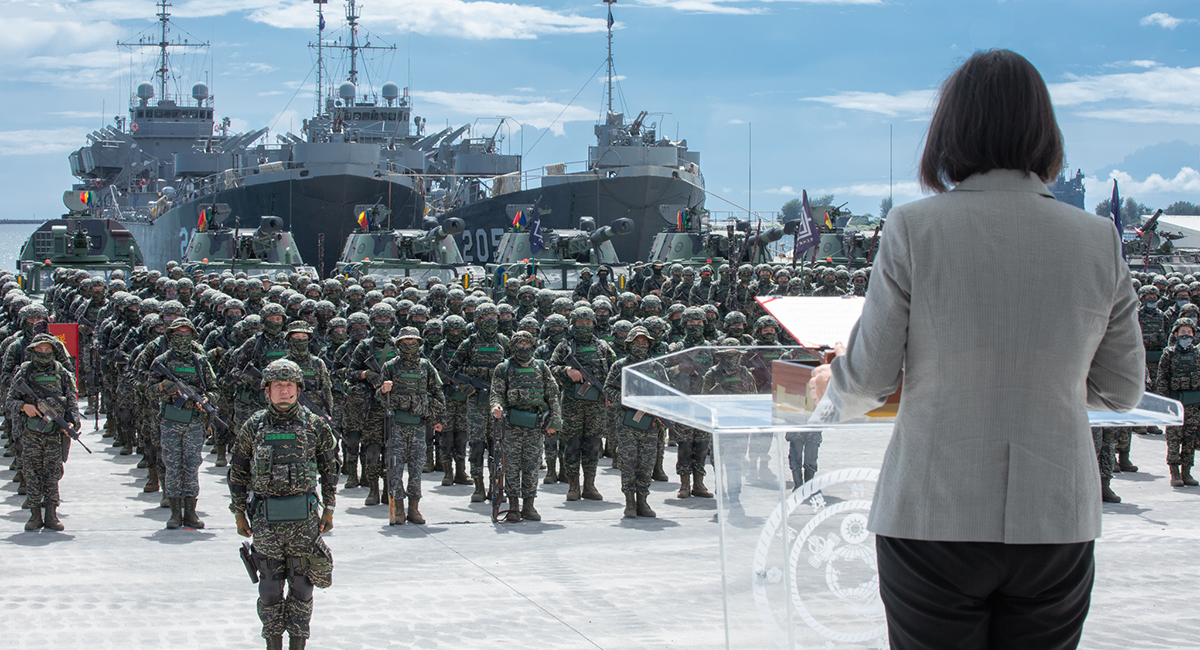The recent gross overreaction of Xi Jinping, China’s autocratic communist dictator, to Nancy Pelosi’s mere visit to Taiwan has raised fears and hackles in the U.S. foreign policy establishment—with calls to overtly pledge to go to the aid of Taiwan if China attacks the island.
For decades now, to encourage Taiwan to accept being reunited with the mainland, a rising China, with increasing heft in global affairs, has tried to shut Taiwan off from the external world diplomatically by getting it removed from world forums, while still maintaining economic relations with the island. In the 1980s, as China properly concentrated on freeing up its economy to turbocharge growth, Deng Xiaoping, then-leader of China, ran the more patient policy of reunion with Taiwan—“one country, two systems”—which allowed Taiwan autonomy with the objective of eventually giving the island economic incentives to reunite with the mainland.
“One country, two systems” is still the official policy of China, but as China’s economy has grown rapidly, the policy, under Xi Jinping, has turned more assertive toward Taiwan, with more threats of reunification by force, culminating in its recent overwrought military exercises surrounding Taiwan in response to Speaker Pelosi’s visit.
Yet such a Chinese tantrum hides Chinese weakness. Xi has reversed China’s course from Deng’s somewhat more enlightened era by significantly tightening the communist party’s control over the mainland’s economy and politics. Such draconian interventions recently have been demonstrated by Xi’s lock down of major Chinese cities because of COVID. However, these measures likely will not be the only thing dragging the Chinese economy in the future. Xi is also tightening the party’s control of Chinese business; China has state-owned, state favored, and party monitored corporations. In the case of the latter, Xi has put communist party hacks on the boards of purely private companies to see that they do not stray from the interests of the state. Such heavy state intrusion may make recent Japanese economic stagnation look mild, especially when such interventionist policies are combined with the high debt of China’s creaking state-owned companies to its state-owned banks.
That the Chinese economy is struggling then makes Xi weak politically just ahead of China’s party congress in which he tries to get an unprecedented third term as president. Thus, the massive exercises surrounding Taiwan, with missile firings near Japan and one over the island, in response to Pelosi’s visit is in part to show strength externally to offset weakness at home prior to the party congress.
Although a Pelosi more astute in foreign affairs (that is not her primary job) probably should have realized that Xi’s sensitivities would be at their peak and chosen another time to show her support for Taiwan, China should not be allowed to dictate who visits the island.
However, does that mean that the United States should boldly state that if China attacks Taiwan, the United States will come to its defense? The current deliberate policy ambiguity of what the American response would be in that event had the purpose of not encouraging Taiwan to recklessly declare its independence, thus triggering an apoplectic Chinese response. Yet on several occasions, President Joe Biden has gone off script and pledged or implied a US defense of Taiwan, with aides rushing to walk that back by saying that U.S. policy toward Taiwan had not changed.
In fact, the United States should be headed in the opposite direction: helping Taiwan to become strong enough to run a “porcupine strategy” against any possible Chinese attack. Taiwan would not need to be able to defeat a much larger Chinese military but merely to deter it from attacking by being able to inflict unacceptable damage to it. Even the policy of U.S. ambiguity has encouraged Taiwan over the years to buy too many sexy, high-tech weapons, such as fighter aircraft, at the expense of the glue that holds militaries together and makes them effective fighting forces. That glue would be better mobilization of Taiwanese society for defense and improvements in for example, military training, logistics, electronic warfare, cyber defense, and command, control, communications, and intelligence (C3I). In addition, Taiwan needs to be able to threaten vulnerable Chinese surface warships with more investment in mine warfare, anti-ship missiles, fast patrol ships, and diesel submarines.
Finally, instead of U.S. hysteria over a possible Chinese attack, Americans should realize that the Chinese military may have made the same mistake as the Russian and Taiwanese militaries by developing or buying high tech systems while neglecting more important “glue” items. After the Russian debacle in Ukraine, if Xi has any sense, he should be fearful that the formidable-looking Chinese military also could be a Potemkin village when the shooting starts—especially if it tried to conduct an amphibious assault, which is one of the most difficult military operations to master. Thus, the United States should not be hysterical about the Chinese threat to Taiwan and rush to pledge to defend the island. Instead, U.S. policy should concentrate on helping a military reform-minded Taiwanese leader, Tsai Ing-wen, to convince a stodgy Taiwanese military that it should prepare to actually fight a war instead of being mesmerized by high-tech toys. Ukraine’s success against Russia should be an inspiration.

















